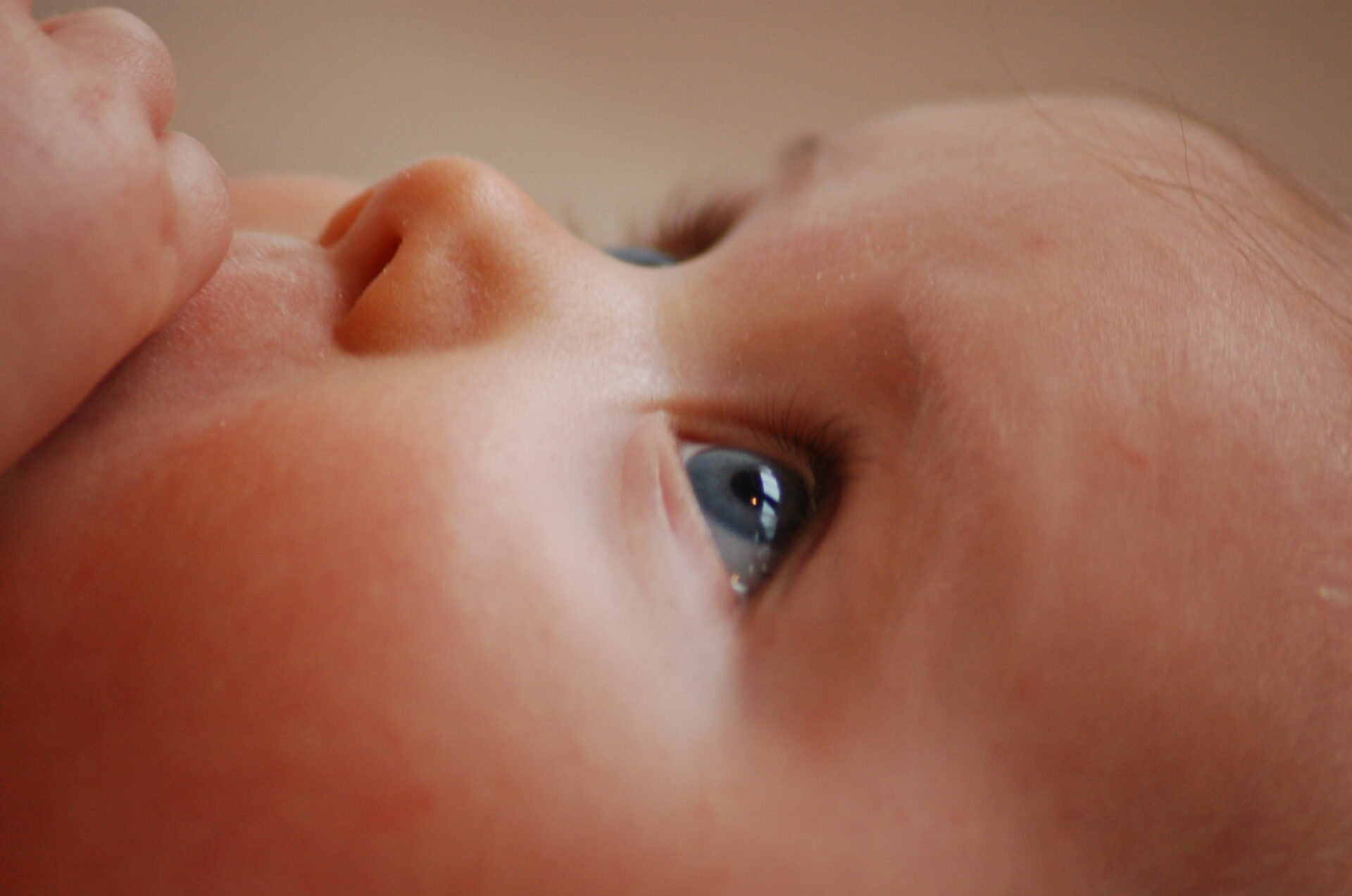Having a baby is an exciting time in most people’s lives. Despite the joy of this life event, it can also be a time of physical and mental changes for a new mother. One such change is postpartum thyroiditis, a condition that can affect many women after giving birth. Postpartum thyroiditis often goes undiagnosed because women are unaware of the symptoms and can be mistaken for other conditions or simply attributed to the changes of being a new mother. In this article, we will discuss the signs, symptoms and treatments for postpartum thyroiditis, and the steps you can take to cope with this condition.
Symptoms of Postpartum Thyroiditis
Postpartum thyroiditis is a rare condition that occurs after childbirth and is caused by inflammation of the thyroid gland. It is believed to be a result of the immune system’s reaction to the body’s natural changes during pregnancy. Postpartum thyroiditis can cause symptoms similar to those seen in hypothyroidism and hyperthyroidism and typically has two distinct stages: a hyperthyroid stage and a hypothyroid stage. It is important to recognize the signs and symptoms of postpartum thyroiditis and receive early treatment in order to minimize the risks of complications.
Recognizing Symptoms of Postpartum Thyroiditis
Postpartum thyroiditis typically has two distinct stages: a hyperthyroid stage and a hypothyroid stage. Symptoms of both stages can be similar to those seen in hypothyroidism and hyperthyroidism and may include fatigue, weight gain, dry skin, constipation, depression, and difficulty concentrating. Additionally, postpartum thyroiditis can cause changes in a woman’s menstrual cycle, either irregular periods or amenorrhea (absence of periods).
Coping with Postpartum Thyroiditis
The best way to cope with postpartum thyroiditis is to seek medical attention as soon as possible. It is common for women to be misdiagnosed with postpartum depression or postpartum anxiety when in fact, they are dealing with postpartum thyroiditis. A specialist can help identify the signs and symptoms of postpartum thyroiditis and provide a diagnosis.
Once a diagnosis has been made, the treatment will vary depending on the stage of the condition. Hyperthyroidism may require antithyroid medications and beta blockers, while hypothyroidism may require thyroid hormone replacement. Additionally, lifestyle modifications and stress reduction techniques can help women cope with the symptoms and the condition.
Causes of Postpartum Thyroiditis
Postpartum thyroiditis is a condition that affects some women following childbirth. It is caused by a sudden change in the thyroid hormone levels and can take several months to get back to normal. It affects up to 10% of women and is typically mild, but can have serious long term effects. Symptoms of postpartum thyroiditis include fatigue, depression, intolerance to cold, someone weight, hair loss, and difficulty sleeping.
What Causes Postpartum Thyroiditis?
Postpartum thyroiditis is thought to be caused by the changes in hormones that occur in the body following childbirth. It is believed that these changes can lead to an autoimmune response, in which the body begins to attack its own thyroid cells. It is also thought that women with a family history of thyroid disease are at a higher risk for the condition.
Managing Postpartum Thyroiditis
The first step to managing postpartum thyroiditis is to identify the symptoms and consult with a doctor. A doctor will typically order a blood test to determine the levels of hormones in the blood and perform a physical exam. Depending on the results, a doctor may recommend lifestyle changes, medications, or other forms of therapy to help manage the symptoms. Exercise, diet, and stress management are all important components of managing postpartum thyroiditis. Additionally, it is important to get regular check ups to monitor the condition and make sure it is not progressing.
Preventing Postpartum Thyroiditis
Although there is no surefire way to prevent postpartum thyroiditis, it is possible to lower the risk by following a few easy steps. Eating a balanced and healthy diet, getting adequate rest, and reducing stress can all help to keep hormone levels in check. Additionally, it is important to attend regular prenatal checkups and follow up with your doctor for any changes in your health. Taking a multivitamin is also recommended.
When to See a Doctor for Postpartum Thyroiditis
When any of the common symptoms of postpartum thyroiditis are present, it is important to consult with a doctor. This will allow a doctor to diagnose and treat the condition in the most effective manner. If left untreated, postpartum thyroiditis can lead to long-term complications and have a negative effect on a woman’s health. It is important to monitor the condition and follow up with a doctor to ensure that it does not become progressive.
Diagnosis and Treatment of Postpartum Thyroiditis
Postpartum thyroiditis (PPT) is a common endocrine disorder in women of childbearing age. It involves the loss of normal thyroid gland function and is usually caused by an auto-immune disorder. Symptoms of postpartum thyroiditis can vary, ranging from mild hypothyroidism to overt hyperthyroidism. Common symptoms include fatigue, weight gain, hair loss, depression, irritability, cold intolerance, constipation, and forgetfulness. It is believed that postpartum thyroiditis is caused by a combination of hormonal changes, immunological factors, and environmental influences.
Diagnosis of Postpartum Thyroiditis
The diagnosis of postpartum thyroiditis is made based on medical history, physical examination, laboratory tests, and imaging studies. Blood tests are typically done to measure thyroid hormone levels. Imaging studies such as an ultrasound or a computerized tomography (CT) scan can help to look for any structural abnormalities in the thyroid gland. A biopsy of the thyroid tissue may also be done to rule out other causes of thyroid dysfunction.
Treatment of Postpartum Thyroiditis
The primary treatment for postpartum thyroiditis is hormone replacement therapy. This involves taking oral medication such as levothyroxine to replace any deficient thyroid hormones. Patients may also need to supplement their diet with iodine and other vitamins and minerals to help support thyroid function. In addition, lifestyle changes such as avoiding stress, eating healthy and limiting caffeine intake can be beneficial. Treatment is tailored to the patient’s individual needs and may include anti-inflammatory drugs or immunosuppressive medications.
Tips for Coping with Postpartum Thyroiditis
It is important for women with postpartum thyroiditis to be aware of the condition, seek medical help if needed, and make lifestyle changes to help manage symptoms. Here are some tips to help cope with postpartum thyroiditis:
• Make sure to get plenty of rest, especially if feeling fatigued.
• Eat a balanced diet and avoid foods that can aggravate the symptoms.
• Exercise regularly and practice stress-reduction techniques.
• Stay informed about your condition and get regular check-ups with your doctor.
• Talk to family and friends about what you’re going through.
• Join a support group for women with postpartum thyroiditis.
Coping with Postpartum Thyroiditis
Postpartum thyroiditis is a type of thyroid disorder that typically occurs after giving birth. It is a result of the thyroid being inflamed, often due to changes in hormone levels that occur during pregnancy. Symptoms of postpartum thyroiditis may include fatigue, weight changes, depression, and difficulty regulating body temperature. It is important to understand the symptoms of postpartum thyroiditis in order to recognize it and take action to manage it.
Diagnosing Postpartum Thyroiditis
If postpartum thyroiditis is suspected, it is important to consult a doctor for an accurate diagnosis. This involves taking a physical examination and completing a series of tests to measure hormone levels. Blood tests are also used to measure the levels of thyroid stimulating hormone (TSH) and anti-thyroid peroxidase antibodies. TSH levels that are higher than normal suggest that the thyroid is not functioning correctly and may be a sign of postpartum thyroiditis.
Managing Postpartum Thyroiditis
If the diagnosis is postpartum thyroiditis, the most important thing is to seek treatment early and manage the condition in order to prevent long-term complications. Lifestyle changes, such as managing stress and getting enough sleep, as well as taking supplements, can help to manage symptoms. In some cases, doctors may also prescribe thyroid hormone replacement medication to help manage the condition.
Seeking Support for Postpartum Thyroiditis
When managing postpartum thyroiditis, it is important to seek support from family and friends in order to cope with the condition and its symptoms. This may include attending support groups or talking to a therapist or counselor. Talking to people who are going through the same thing can be helpful in understanding the condition and managing its symptoms.
Long Term Effects of Postpartum Thyroiditis
If postpartum thyroiditis is left untreated, it can lead to long-term complications such as an increased risk of developing hypothyroidism or hyperthyroidism. It is important to take the necessary steps to manage the condition in order to reduce the risk of developing any long-term effects. It is also important to remain vigilant and pay attention to any symptoms that may arise.
Living with Postpartum Thyroiditis
Living with postpartum thyroiditis can be very challenging, but it is important to remember that it is a manageable condition. By understanding the symptoms and seeking medical treatment, managing the condition can be made easier. It is also important to take care of oneself by getting enough rest and eating a balanced diet. Seeking support from family and friends, attending support groups, and talking to a therapist can also be beneficial in managing the condition.
Long Term Effects of Postpartum Thyroiditis
Postpartum thyroiditis is a temporary thyroid disorder that affects women after giving birth and can cause a variety of symptoms including fatigue, hair loss, anxiety, and weight gain. While many women recover without needing any treatment, some may develop long-term thyroid problems. It is important to recognize the signs of postpartum thyroiditis and know how to best cope with the symptoms.
The most effective way to handle postpartum thyroiditis is to take care of your health by eating balanced meals, exercising regularly, and getting enough rest. Additionally, talk to your doctor about your symptoms and consider taking medications or supplements as prescribed. Depending on your condition, your doctor may also recommend lifestyle changes or further testing.
In some cases, Postpartum Thyroiditis can lead to long-term thyroid problems such as hypothyroidism or hyperthyroidism. It is important to keep a close watch on your symptoms and keep up with checkups with your doctor to maintain a healthy thyroid and reduce any potential health risks. While postpartum thyroiditis can be a tricky condition to manage, being proactive and being aware of your symptoms is the best way to take care of yourself.





Leave a reply